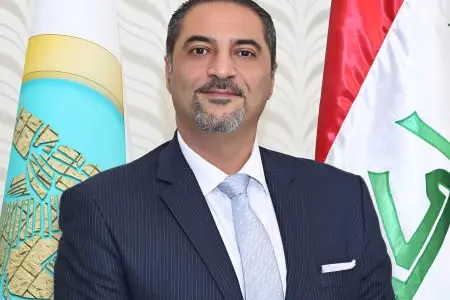PHOTO
Baghdad / Abu Dhabi: Trade Bank of Iraq (TBI) has announced a new capital increase that aims to raise the bank’s financial strength in line with the new strategic vision for 2020-23.
The bank has increased its capital to USD 3 billion (3.5 Trillion Iraqi Dinar) for the year 2020 from USD 2.3 billion (2.7 Trillion Iraqi Dinar) in 2019.
The step has been taken with the approval of the Prime Minster of Iraq on the back of TBI’s promising 2019 financial results audited by E&Y Ernst & Young. The increased capital is aimed at reinforcing the bank’s status in Iraq and its position as a leading Iraqi bank with global reach.
TBI achieved a robust growth in revenues and in key financial areas during the financial year 2019. The financial results shows that TBI achieved revenues of USD 708 million (837 billion Iraqi Dinar), which grew by 12% over 2018, and a net profit of USD 556 million (657 billion Iraqi dinars) in 2019, an increase of 68% from the previous year.
The total assets of TBI grew to USD 29 billion (34 trillion Iraqi Dinar) in 2019 thereby recording an increase of 27% in comparison to 2018.
Faisal Al Haimus, Chairman & President of Trade Bank of Iraq, said: “The capital increase is a significant step forward on the path to creating a stronger bank which will reinforce our ability to execute the strategic plan for the coming three years to increase the banks revenues and profits.”
The capital increase, the largest in the history of the TBI since its establishment in 2003, solidifies TBI’s leadership on development financing for the country and help continue to play a pivotal and influential role in Iraq’s ongoing recovery.
Faisal added: “We have accomplished a lot in the recent years but we are aware that we have still a long way to go. Our objective is to help increase the quality of life for the people of Iraq which is the essence of the social responsibility towards the Iraqi people. “
Based on the Approval of the Prime Minister of Iraq, TBI also successfully transferred 20% of the bank's profits for the year 2019 amounting to 111 million US dollars (131 billion Iraqi dinars) to the state's treasury.
The bank opened its first branch outside Iraq last year in Riyadh, KSA and plans to upgrade its representative office in Abu Dhabi Global Market to enable it to conduct investment arranging and advisory activities.
Ends
About Trade Bank of Iraq (TBI)
The Trade Bank of Iraq was established in 2003 and is the top commercial bank in the country. The bank holds approximately 80% of the trade finance business in Iraq and ranked 1 among Arab banks in terms of cost to income ratio and 332 globally in terms of Tier 1 capital. It has established 26 branches across Iraq, offering a wide range of banking services to all customers including companies, individuals and government institutions to widen its customer base and expand into new markets.
© Press Release 2020Disclaimer: The contents of this press release was provided from an external third party provider. This website is not responsible for, and does not control, such external content. This content is provided on an “as is” and “as available” basis and has not been edited in any way. Neither this website nor our affiliates guarantee the accuracy of or endorse the views or opinions expressed in this press release.
The press release is provided for informational purposes only. The content does not provide tax, legal or investment advice or opinion regarding the suitability, value or profitability of any particular security, portfolio or investment strategy. Neither this website nor our affiliates shall be liable for any errors or inaccuracies in the content, or for any actions taken by you in reliance thereon. You expressly agree that your use of the information within this article is at your sole risk.
To the fullest extent permitted by applicable law, this website, its parent company, its subsidiaries, its affiliates and the respective shareholders, directors, officers, employees, agents, advertisers, content providers and licensors will not be liable (jointly or severally) to you for any direct, indirect, consequential, special, incidental, punitive or exemplary damages, including without limitation, lost profits, lost savings and lost revenues, whether in negligence, tort, contract or any other theory of liability, even if the parties have been advised of the possibility or could have foreseen any such damages.




















